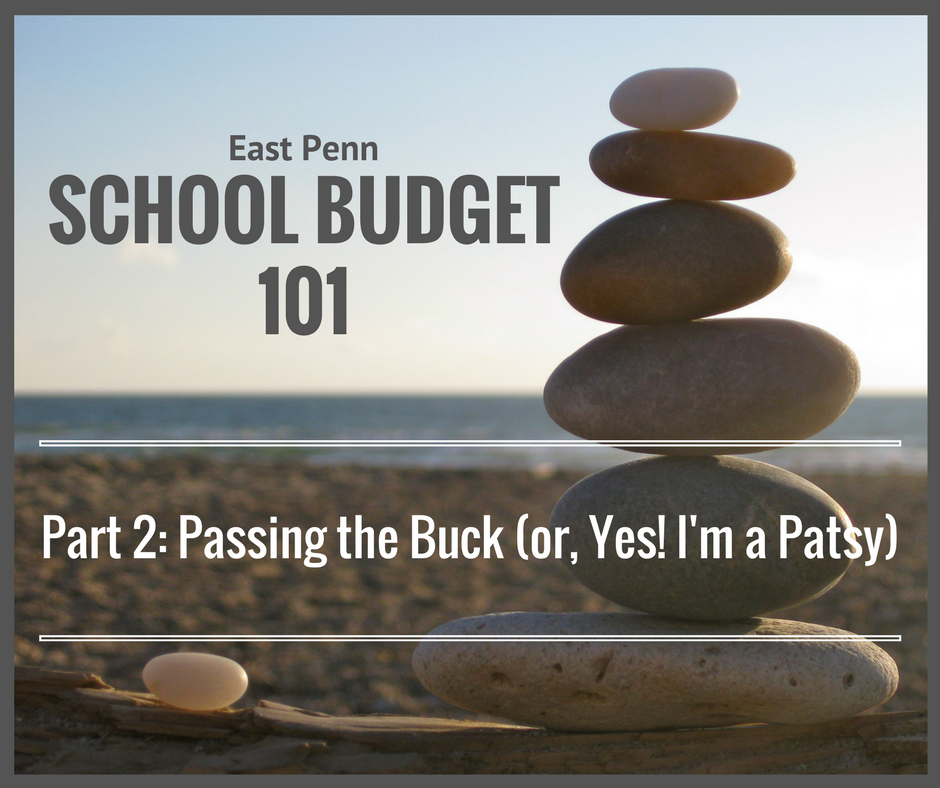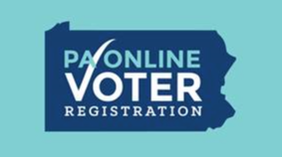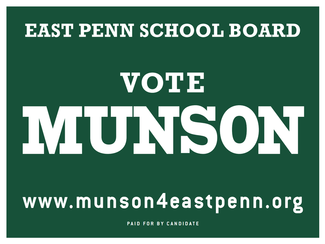|
You’ve heard the saying “the buck stops here,” right? President Truman famously kept a sign with the phrase on his desk. He recognized the common sense idea that leaders should take responsibility for the consequences of their decisions. But as we all well know, most politicians don’t like this idea very much. Our representatives in Harrisburg and Washington are quicker than ever to duck responsibility for how their votes affect regular people. And nowhere is this more obvious than in the funding of public schools in Pennsylvania. The first and most important fact about our district’s budget is that many of our expenses are decided in Harrisburg, not locally. State legislators pass mandates that legally require the district to spend money but do not provide the revenue to pay for them. These politicians (with salaries from $98,609 to $134,998) create new expenses for school districts every year, then pass the buck to local school board members (who are paid $0) to collect the taxes needed to pay the bills. Here are some of the biggest yokes our state representatives have put around the school district’s neck:
These are just three examples of ways in which our representatives in Harrisburg have passed the buck to you and I at the local level. There are literally hundreds of other mandates handed down by the state, from requiring a certain number of foreign languages being taught, to dictating the rules for bereavement leave of employees, to how disciplinary records must be transferred when a student transfers schools. Some mandates focus on big issues while others can only be described as extreme micromanagement. And they adopt more every year. After all, it's easy to decide what schools should and shouldn’t do when you don’t actually have to pay any of it. Let me be clear: I am not opposed to fair retirement benefits for teachers, robust special education funding, school choice, or the goals of numerous other mandates. We need all of these things. But those making the decision for how to implement them should also be the ones making the decision for how to pay for them. The state used to contribute its fair share. In the 1974, the state paid 55% of all public school costs. Next year, by contrast, East Penn is on track to receive only about 23% of its operating budget from the state. They’ve passed the buck to you and me. So as you review the school district’s four budgets each year, consider how much of the “local” budget is really under local control. And next time you have the opportunity to vote for a state representative, look at how many school mandates they favor and whether they have passed the buck to local school districts to pay for them. State and federal mandates are only one piece of the larger budgetary puzzle in our district. To read the other pieces in this budget series, check out:
2 Comments
I know a lot of independent voters. People in the community who vote based on issues and candidates rather than political party, and who-- as a result-- are uncomfortable registering officially as a Democrat or Republican. In fact, I was one of those people until just a couple of years ago. But then I learned how the Democrats and Republicans in Pennsylvania have conspired to keep independent voices out of our local school board elections. This changed my mind. And if you are an independent voter, I want to take at least one stab at changing your mind too. Here I go... Pennsylvania law requires that school board elections be “non-partisan.” This means that being a Republican or a Democrat or anything else isn’t supposed to matter in school board races. The problem is that this isn’t how school board elections are actually run. In practice, Pennsylvania interprets “non-partisan” to allow only that school board candidates can run as both a Republican and a Democrat at the same time in primary elections-- what is known as cross-filing. Because Pennsylvania also has closed primaries, this means that anyone who isn’t a registered Democrat or Republican is EXCLUDED from voting in these critical school board races.
I say critical because local elections are where your voice makes the most difference as a voter. Critical too because in the East Penn School District, who wins and who loses school board races is almost ALWAYS decided in the primary election. Do you see what the major political parties have done there? By limiting voting in school board primary races to only registered Democrats and Republicans, they cut out the voice of independent voters completely. And given that primary voters of both major parties tend to be more ideological and more extreme than the general population, this means we get more ideological and more extreme school board members as a result. Independents, we need your voice back in the process! This is why I urge you to officially register with the state as a Democrat or a Republican. This is the only way to make your vote count. Doing so doesn’t define your identity or how you vote. But under current election rules, it DOES define whether you can vote at all in the upcoming school board primaries on May 16th. This is something I’m passionate about, because I believe we need independent voices on our school board that will make careful decisions based on the facts, rather than simply repeating partisan talking points at local school board meetings. The deadline for registering-- including officially changing your party status- is April 17th. You can do it easily online right now at: https://www.pavoterservices.pa.gov/Pages/VoterRegistrationApplication.aspx So, did I convince you? Don’t let the major political parties use your independence to keep your voice out of our school district. Register as a Democrat or Republican today! 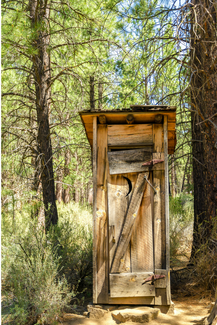 The bathroom wars have sadly come to our schools here in the East Penn School District. A fight has been raging nationally for over a year now, as opponents of extending civil rights protections to transgender men and women have focused public attention on public bathroom use in places like Texas and North Carolina. An East Penn family has now made our schools a part of this national political debate by insisting that transgender students be excluded from the locker room their daughter uses at Emmaus High School. Regardless of your knowledge of our district’s transgender population or your views toward transgender civil rights, let me suggest that this is a manufactured controversy, for three reasons. Reason #1: Current district practice is the result of our own policy, not that of the Obama administration. The U.S Justice Department, under the Obama administration, issued a letter this past spring indicating that districts must not discriminate against transgender students in any school facilities, including bathrooms and locker rooms. The letter set off a firestorm of controversy nationally, with opponents of President Obama citing it as an example of legal misinterpretation and federal meddling in state and local affairs. The family here in East Penn have cited the letter as a chief motivating factor in bringing the controversy to our district. But here’s the thing: The practices of our district toward sexual minorities such as gay, lesbian, bisexual, and transgender students were in place long before the letter from the U.S. Justice Department. The district’s Nondiscrimination in School and Classroom Practices Policy (#103) was passed on February 23, 2015-- more than a year and a half ago. Moreover, the policy was developed after collecting input from local school administrators, local teachers, our own local school board, and local student groups. It was presented multiple times at local school board meetings, where it was available for public review and comment by the local community. This is not an Obama issue, a Republican vs. Democrat issue, a liberal vs. conservative issue, or a federal vs. local issue, and nobody in our community benefits from attempts to make it part of such battles. Reason #2: Our children should not be used as pawns in political battles. This leads to the second important reason. We should, of course, have vigorous debate over President Obama’s policy initiatives and legal interpretations. But we should not use the children in our schools as pawns in this debate. Through my own conversations with students, teachers, and administrators, I understand that students are almost always able to easily and amicably come to terms with transgender students and their full participation in school life, just as students have come to terms with women in schools, with racial minorities in schools, and with gay, lesbian, and bisexual students in schools. This does not mean that students don’t have questions and concerns, nor does it mean that they all agree with one another. But they are ready to respect one another and respect that we live in a diverse community that values equality between different people. The trouble arises when our kids return home and discuss these issues with the adults in their lives. Some adults too quickly hitch the many different student identities to larger political debates and battles. This is wrong, no matter what side of the debate you happen to be on. Don’t make children in our local community the foot soldiers in national partisan fights. Reason #3: ALL children at East Penn have access to accommodations And this brings me to the third and most important point. All our students-- including the student of the family who has ignited the controversy-- deserve to feel respected and feel safe in school. Nobody is forced to undress or shower under conditions that make them feel uncomfortable. Students routinely use bathroom stalls and other private areas. Students who are uncomfortable changing in the locker room or using restrooms are offered further options, from changing in a nurse’s bathroom to taking summer gym. So this is ultimately a manufactured controversy, fueled by a lack of knowledge of actual school policy, unfair in its use of students as pawns in a national political fight, and fueled by a desire for the public spotlight rather than easy, pragmatic accommodation of one family’s beliefs. Let’s get our focus out of the bathrooms and locker rooms, and on to ways we can improve our schools for everyone.  photo credit: Purity via photopin (license) photo credit: Purity via photopin (license) I’m sad to report that there was lots of hate and vitriol on display at the East Penn school board meeting last night. Board members were accused of conspiracies, cover-ups, and conflicts of interest. They were called Stalinists, bullies, fascists and mentally unfit. They were threatened with personal lawsuits. Why All the Insults? People were reacting to a proposal on the meeting agenda to censure-- formally reprimand-- board member Lynn Donches for “material misstatements of fact.” I believe the proposal for censure arose because of allegations Mrs. Donches made at our previous board meeting against longtime district employee Debra Surdoval. Donches publicly accused Surdoval of participating in a “coverup” and implied (though didn’t explicitly state) she might be involved in criminal activity. I say I believe this is the reason for the agenda item, because I actually don’t know for sure: the motion was ultimately not discussed by the board at all. No board member-- myself included-- seconded the proposal. So all that emerged from the motion was poisonous name-calling and unsubstantiated innuendos about possible hidden motivations of board members and district employees, all made merely in anticipation that such a censure vote might be taken. The tragedy in this episode lies in its example of the continued ability of a small but vocal minority in our community to hijack substantive discussion of both educational needs and fiscal responsibility in our district. The board, made up entirely of volunteers, is forever forced away from the real needs of students and taxpayers by personal insults, politically motivated threats, and fantastic conspiracy theories. Because of this, such nonsense represents more than an attack on board members; it is an attack on all of us. And we all lose. What Can Be Done? Simple: show up. I mean what kind of community do you want? Don’t let a hateful minority of voices define our larger community voice at school board meetings. Come and speak about something you appreciate about our public schools. Or come and voice a complaint you have. Or an idea for making the schools better. There are no shortage of problems in our district that need solving (though I’m reasonably sure Stalinism is not one of them). The point is not that everything is perfect or that we will all agree on every issue, but that public education is a community good that can only be preserved-- and improved-- through engaging everyone in civil discussion and debate. The beginning of every meeting is set aside for public comment, and even a single thought expressed in just a few seconds is useful. The agenda is organized so that you can leave in less than a half hour if you like. Our next board meeting is June 22nd, 7:30pm, at 800 Pine St. in Emmaus, and future meetings are listed on the district website. I will be there. I hope you will too. NB: This post is a more formalized version of comments I made on Facebook the night of the meeting. I address different, but related, issues in two previous posts: “The Problem with Partisanship” and “Censorship in Our School District".  photo credit: porschelinn via photopin cc photo credit: porschelinn via photopin cc As anyone following the fiasco in Washington DC knows, bitter partisanship is costing taxpayers money, damaging the economy, bringing hardship to ordinary Americans, and threatening the full faith and credit of our country. Yet even amidst this partisan meltdown, some local candidates for office here in the Lehigh Valley continue to lean on empty partisan talking points and political ideology rather than engage with the practical needs of the local community. Why? Studies Show: Partisanship Clouds Judgment There has been a flurry of recent scientific studies that help explain this puzzle. They point out truth and good judgment are the first casualties of partisanship. For example, a Princeton University study showed that people tend to give the partisan answer to factual questions about the economy instead of the correct answer, even when they know the truth. Perhaps even most interesting, a recent experiment compared how self-described Democrats and Republicans interpreted new facts under conditions of low and high partisan polarization. The results of the experiment show that people use new knowledge in forming their views when partisan polarization is low, but ignore new facts and simply repeat their party’s slogans when partisan polarization is high. Worse, high polarization made people more confident in their (less grounded) views! Put simply, partisanship reduces our ability to learn new facts and make the best possible choices for ourselves and our community. Dare I say it? Yes, partisanship can make us stupid! At a moment in our nation's history when partisan polarization is greater than at any time in more than a century, we need to break out of partisan bickering wherever we can. Keep Partisan Politics Out of Community Government And the place to start is our local community. We need energetic and dynamic people we can trust to make careful decisions based on accurate facts and the needs of the community. We need consensus builders whose first instinct is to solicit the knowledge, advice, and experience of others, rather than making snap judgments based on the tired rhetoric of national politicians and wild-eyed talk show hosts. The political spectacle in Washington is at once frightening, maddening, and comic. It represents vicious partisanship gone awry. And it hurts all of us. But we don't have to run our own local communities in the same way. We all will have the opportunity to prove this on November 5th.  photo credit: miuenski via photopin cc photo credit: miuenski via photopin cc School board candidates Garrett Rhoads, Wanda Mercado-Arroyo and Chris Donatelli recently distributed campaign literature that accused me and other candidates of not having "the decency to make themselves available for a public debate." (You can see their flyer in its entirety here.) My record of engagement with the community over the issues at stake in our schools speaks for itself. This flyer says less about me and more about the judgment of the candidates who produced it. More than anything, I'm saddened these candidates have felt they need to resort to negative attacks. Their charges are based on an event held by the organization CEPTA last week (the name of the group is left off their flyer). I did not attend this one meeting for the simple reason that I was not invited. Every other public forum held during this campaign-- both partisan and non-partisan-- extended direct invitations to all candidates via telephone call, email, or both. CEPTA, however, did not invite everyone. I learned of their meeting only indirectly, by reading a published comment made by Patch.com editor Jennifer Marangos, who was invited. An organization that extends direct invitations to individual journalists but not individual candidates is unlikely to provide a venue for open and honest discussion about public education and the needs of our community. I've since learned that candidates in previous years have come to the same conclusion I have regarding CEPTA forums, including our current Republican state representative Ryan Mackenzie. Failing to invite candidates for public office to an event, and then questioning their "decency" for not attending that very same event? I would define decency very differently.  photo credit: truthout.org via photopin cc photo credit: truthout.org via photopin cc One of the chief obstacles to making meaningful, positive improvements in the East Penn School district is a small but vocal minority in our community who insist on viewing the issues we face in largely partisan terms. The first question they ask is not whether a candidate, an idea, or a proposal is a good one, but whether or not it is "Republican" or "Democratic." This is a foolhardy and dangerous approach. Foolhardy because most of the issues faced by public education and the taxpayers who support it are complex and require careful and balanced judgment based on facts. They cannot be successfully addressed with the tired and simplistic ideological sound bites of the political parties-- Republican or Democratic. Why would anyone want to use the model of partisan pettiness and gridlock that characterizes Washington DC and Harrisburg here in our local community? But partisanship is also dangerous. A number of scientific studies published in just the last few months show how political partisanship actually clouds judgment and makes it difficult for people to express or act on accurate information. The studies demonstrate that people make less accurate assessments of the economy, neglect the soundness of arguments, and ignore their own personal experience in "Republican vs. Democratic" contexts compared to when political partisanship isn't an issue. Put simply, partisanship hurts our ability to make the best possible choices for our community. Dr. Claude Fischer of the University of California summarizes this research on his blog. You can also access the individual research studies-- completed at Princeton, Northwestern, Columbia, Stanford, and Aarhus University-- directly through these links:
I'm proud that the many yards signs promoting my school board campaign are equally distributed in the front yards of Republicans and Democrats. And I am committed to meeting the challenges of the East Penn school district in a balanced, inclusive and fair way that reflects careful judgment of facts, not blind partisanship. 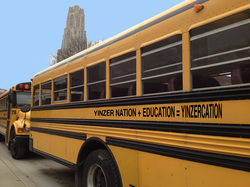 I just learned about an interesting group in the Pittsburgh area-- Yinzercation-- that are trying to organize their community to support public schools. They've done a variety of things to get the message out, including creative online and in-the-streets events that have attracted positive media attention and the attention of state legislatures. Opponents of public education are both vocal and well-organized. Public school supporters should be the same. |
Details
Categories
All
Archives
December 2017
|
